PCOS is becoming a very common problem, especially among young women. Starting from as early as 11 years to up to 40 years women may develop this problem. Proper diet and lifestyle modification is the only solution to tackle the situation. A study reveals that the prevalence of PCOS cases in India ranges from 3.7 – 22.5% depending on the population and criteria used for diagnosis. (1)
The current situation before you start an Indian diet plan for PCOS/PCOD and weight loss
Since the magnitude of the problem is huge, there are many dietary myths around approaching the issue. Before getting an Indian diet plan for PCOS/PCOD and weight loss, most of the patient–dietician conversations go like below –
Lady: Hi, I am 25 years old. I am struggling with PCOS for the last few months. I am not getting my period on time. Sometimes I don’t get it for 2-3 months. I feel abdominal pain, getting pimples, feel irritated, have mood swings and have gained almost 10 kg recently. Please help me with a good diet.
Dietician: Can you tell me what you eat these days?
Lady: Since I was gaining weight, I tried to check my diet. I am skipping my breakfast. I only take coffee and biscuits in the morning. For lunch, I am having brown rice or millet with vegetables and for dinner, I am having only soup and salad.
Let me be honest with you, I do feel hungry at times, especially in the evening. I have instant noodles or instant oats or instant pasta most days.
Dietician: Do you exercise?
Lady: I don’t get any time for exercise. I am too busy. I leave the house at around 8.30 am and come back by 8 pm. Then I don’t feel like doing any exercise.
Dietician: What’s your favourite food?
lady: I love sweets. I face too many sugar cravings, especially during the evening. I can’t resist ordering some pastry/doughnut/ muffin/ mithai etc.I do enjoy salty savoury food also like bhujia, samosa, kachori sabzi, pizza etc.
Dietician: What you don’t like to eat?
Lady: I don’t really enjoy eating vegetables. Since I have gained weight, I am somehow pushing myself to have vegetables at night.
Dietician: When do you sleep?
Lady: I go to bed around 11.30 pm but don’t get sleepy until 1 am. I just keep checking my phone.
This is a common conversation that often happens between the lady and the dietician. Are you finding any similarities? If yes, then this blog is for you. There are many myths about PCOS/PCOD diet.
Let’s address a few frequently asked questions and get the answers helping to plan your Indian diet for PCOS/PCOD and weight loss.
Indian diet plan for PCOS/PCOD and weight loss – FAQs
Are PCOS and PCOD the same?
Women have two ovaries that mature and release one egg every month. If the egg gets fertilised pregnancy starts or else the women get menstruation. The ovaries produce a small amount of androgen (male hormone).
PCOD or Polycystic Ovarian Disease is a condition where ovaries release a lot of immature or partially matured eggs which eventually form cysts (small sacs filled with liquid). Women experience weight gain, irregular periods, male patterns of hair growth etc. This condition occurs due to hormonal imbalance. PCOD creates an obstacle towards pregnancy but does not generally lead to infertility.
On the other hand, PCOS or Polycystic Ovarian Syndrome is a condition where ovaries start producing high amounts of androgen. This interferes with the release of the egg during ovulation. These eggs turn into cysts and build up in the ovary. This makes the ovary enlarged. Women complain of getting irregular periods, weight gain, facial hair growth, hair fall etc. PCOS is a disorder of the endocrinal system. (2)
How can I lose weight with PCOS?
Weight loss may be challenging for PCOS patients but it is not impossible. It may take some time but you must have enough patience to go through the journey.
Follow a balanced diet that provides adequate energy to maintain your BMR and the energy required for your activities. You need ample protein and good fat. You must also ensure the supply of vitamins and minerals. Control your sugar and salt intake. Stay active and exercise regularly. Fix your sleep cycle and manage your stress level to bring the hormonal balance. All these factors will help you to lose weight gradually.
Should I stop eating carbohydrates?
You need a balanced diet. Don’t fall for any fad diet. You need carbohydrates to supply energy.
50% of your daily energy should come from carbohydrate-rich food. However, you must pay attention to the quality and quantity of the carbohydrate you are consuming. A high carbohydrate diet is often linked with chronic inflammation.
Eat whole grain cereal and cereal products like – rice, murmura, poha, khoi, wheat atta, suji, dalia, wheat puff, corn, jowar, atta, bajra atta, ragi flour, quinoa, oats, sabudana, makhana etc.
Eat in moderation. Don’t load yourself fully with food rather eat a moderate portion of cereal during meals.
Avoid eating refined flour and ultra-processed products like instant noodles, instant oats, and instant pasta, ready-to-eat packaged foods. These products are mostly empty calories, loaded with refined low-quality ingredients and preservatives. They generally bring a sudden spike in your blood sugar level and regular consumption may lead to compromised insulin response. (6)
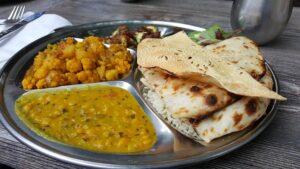
Shall I try going gluten-free? How gluten and PCOS are connected?
Gluten and PCOS have no direct connection. Inflammation is common once you have PCOS. Gluten may cause inflammation if you are intolerant to gluten. Now if you have PCOS and gluten intolerance, then the situation gets worse with a persistently high level of inflammation.
Let me explain –
Inflammation and PCOS
As mentioned earlier, in PCOS ovary start producing more and more androgen (male hormone). Hypersecretion of androgen leads to chronic low-grade inflammation in the body.
It is evident that when you have PCOS, inflammation markers (CRP, white blood cells, IL 18, MCP 1) in your body go up significantly. Oxidative stress and inflammation are correlated with circulating androgen. Higher androgen level means increased oxidative stress and inflammation. (3) (4)
Besides this, excess dietary glucose also triggers oxidative stress and inflammation associated with insulin resistance.
Inflammation and gluten
Gluten is a storage protein. Most of the people can digest gluten quite well.
However, there are about 1-3% of people who finds gluten hard to digest. The condition is called gluten intolerance or gluten allergy. Mild to moderate gluten intolerance is called non-celiac gluten sensitivity which creates inflammation affecting the digestive system. The severe form of gluten intolerance is called celiac disease which is an autoimmune disorder.
How to know that I am gluten intolerant?
There are a couple of symptoms that may cause due your gluten intolerance. If you are constantly suffering from the following issues, you may have some degree of gluten intolerance. Consult a gastroenterologist for a check-up.
Gluten intolerance symptoms are like this –
- constipation, diarrhoea, smelly faeces – altered bowel movement
- bloating
- stomach pain
- fatigue
- headache
- body pain – bone, and joint pain
- brain fog
- Anxiety & depression
- Skin rash
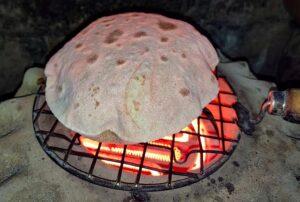
Do people become gluten intolerant?
Constant research is going on to increase food production to cater increased population in the world. Genetically modified crop is a reality today to have more yields.
Research shows that the human intestinal tract is not fully evolved yet to deal with modern grain protein. Where gluten is concerned, the protein gliadin is particularly suspected to cause an undesired immune response. (5)
Do I have to go gluten-free in PCOS?
There is no evidence that going gluten-free will help you to fix PCOS. But if you are gluten intolerant then you must adopt a gluten-free diet to manage PCOS better.
However, the fact is many people without any gluten intolerance got good results avoiding gluten in their daily diet. Interesting right?
The principle of the PCOS diet is to avoid refined carbohydrates, and sugar and have more whole grain cereal, protein and loads of vegetables and fruits. This helps to –
- Manage the insulin resistance
- Supply antioxidants to control the oxidative stress
- Reduce abdominal fat (otherwise belly fat trigger further inflammation)
- Reduce weight
Note that gluten is present in wheat, rye and barley and in their products.
Now you pick any popular processed food or fast food like biscuits, cookies, instant pasta/ noodle, cake, doughnuts, muffins, pizza, burgers, bread etc – all have refined flour or semolina as the primary ingredient along with loads of sugar, refined oil and preservatives. Going gluten-free means you must avoid all these products too. This automatically reduces the refined carbohydrate, refined sugar, refined oil and preservative load in your body.
Thus, going gluten-free also means going processed food free. That is the main secret of feeling good and energetic soon after avoiding gluten. Therefore, if you are a junk addict and have too much-processed food in a day, going gluten-free might help you to fix PCOS.
I am planning to switch to millet and avoid rice. Is that okay?
Try to follow a sustainable diet which you can practice for the rest of your life. Don’t think avoiding rice will give you a fast result. It’s all about the quality of the cereal. If you feel comfortable eating rice, continue to have rice. But remember to have it in moderation. Don’t eat too much rice that you feel sleepy post lunch or dinner.
Accompany rice with dal, sabji, fish/ egg/chicken/curd etc and have a better glucose response.
Millet is also a good choice for its high fibre content. If you are comfortable eating millet, consider having it 3-4 times a week.
If you are already suffering from poor digestion like acidity, bloating, indigestion etc, then avoiding high-fibre food like millet should be a wise choice. On the other hand, rice has a decent fibre level which is easy to digest. (7)
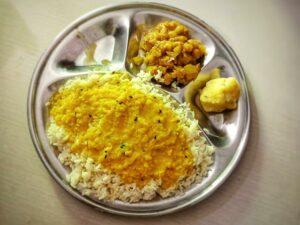
Then shall I start brown rice? White rice will make fat right?
Brown rice contains high fibre compared to white rice. This helps to make you feel full for a longer time and also shows a better insulin response.
But, as mentioned above, if you are suffering from poor digestion, bloating, flatulence etc, having brown rice may not be a good decision. (7)
Instead of having super polished white rice, try having semi-polished boiled rice. The fibre content of semi-polished rice is in between that of brown rice and white rice. Often this rice is found to be suitable for most people.
What is the best carbohydrate for PCOS then?
There is no particular cereal which works wonders for PCOS. Focus on bringing variety to your diet.
Have all types of cereal and its products preferably the whole grain form. Therefore, having upma/ dosa/ poha/ idli/sandwich/ oats/ dalia etc for breakfast, semi-polished rice/ wheat flour roti or millet roti for lunch and dinner, murmura/Khoi/ wheat puff/ bhutta for evening snack works perfectly fine.
How much carb is enough for me?
It is difficult to say how much to eat. Eat in moderation. Take the first helping and finish it. Think twice before taking the second helping. You must feel comfortable and energetic after finishing the meal. If you feel sleepy post meal, that means you have overeaten. Try to keep the carbohydrate intake under control – not too much, not too less. (8)
Shall I take a high-protein diet?
You don’t need a high protein diet rather sufficient good quality protein is enough for most PCOS patients. Consuming protein from 0.7 – 1 g / kg body weight is enough to maintain good health, lose weight and control the PCOS symptoms.
What protein is best?
A variety of dal, nuts and seeds, milk and milk products are the primary source of protein for a vegetarian diet.
For non-vegetarians, eggs, fish, chicken, meat etc are a great source of first-class protein.
Having one katori of dal/ sprouts, a glass of milk or milk products, one whole egg, a medium-piece fish or 2-3 pieces of medium size chicken/ meat is enough to meet the daily protein requirement for an adult.
But I am vegetarian, do I have to eat protein powder to lose weight, my gym instructor insisting me.
Eating a high-protein diet not necessarily will help you always to lose weight fast. Eating sufficient protein in your diet along with good activity & exercise helps to assimilate the protein better in your body. (9)
A well-planned vegetarian diet can provide you with sufficient protein. The protein quality also can be improved by combining plant protein with cereal. The combination improves the amino acid profile of the plant protein to a good extent.
Protein powder may be a good choice once you are into heavy workouts on a daily basis and for fixing PCOS complications. (10) Otherwise for a sedentary to moderate lifestyle, a diet is enough to meet your body’s requirements.
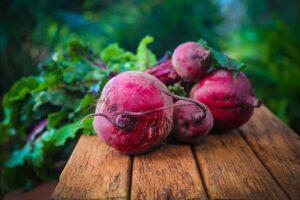
Shall I eat salad as a meal?
Every meal should have a balance with some portion of carbohydrates, protein, fat, vitamins and minerals. Eating only soup and salad for a major meal like lunch or dinner on regular basis is definitely not recommended. A well-planned balanced diet is necessary to provide a sufficient supply of vitamins A, E, B complex, C, selenium, calcium, chromium, zinc, magnesium etc. (11)
I avoid potatoes. It will make me fat. What vegetables are good?
Eating potatoes will not make you fat. But if you are eating only potatoes, that is definitely not a healthy choice. You must have a portion of green leafy vegetables, some roots and tuber and a portion of other vegetables on daily basis. A portion of potato/ yam/ colocasia etc can be part of your daily diet.
However, don’t forget to consume seasonal greens and other vegetables like gourd, pumpkin, okra, brinjal etc.
Can I have fruits juice?
Fruits are best to chew and eat. Fruit juice is often lack in fibre as the pulp is generally thrown away. This leads to an increase in the blood glucose spike. Therefore, cut your fruits and eat along with their pulp.
Avoid having ultra-processed packaged fruit juice. If you read the label, you will see that these are nothing but sugar-loaded drinks with an almost negligible amount of fruit concentrate. (12)
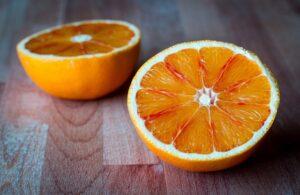
Can I have avocado?
Avocado is a great fruit for the countries where it grows. When you get avocados in the supermarket, they are often coated with a high degree of pesticides to keep them fresh and appealing to the customer. Therefore, don’t waste your money buying imported exotic fruits, rather consume locally produced fruits as per the season.
I don’t have mango or banana as it gains weight. What fruit to eat?
Banana, mango, custard apple, chiko – all these fruits are sweet and loaded with nutrition in season. So consume it in moderation. Two fruits (200 g) – one sweet and one tangy (citrus fruit) fruit – are enough for a day to supply the micronutrients that your body is demanding for.
Can I have fruits as dessert?
Keeping a steady blood glucose level is necessary in PCOS. After a major meal like breakfast, lunch, or dinner- blood glucose level gets increased. Having fruits immediately after a major meal may further shoot the blood glucose level. It is better to place your fruit as a mid-morning or evening snack for a steady blood glucose response.
Can I have nuts? Is it going to make me fat?
Eating nuts in moderation is going to provide you with good fat, protein and fibre along with essential vitamins and minerals. However, finishing a jar of nuts while watching a screen is going to make you fat. Have a fistful of a soaked nuts mixture (peanut, almond, cashew, pistachio etc) every day. This amount is enough for ensuring health benefits.
Can I have seed?
Yes, you can have a tablespoon of soaked or roasted seeds to supply all the micronutrients. There are anecdotes that having a particular type of seeds following the menstrual cycle helps to relieve the PCOD symptoms. The method is called seed cycle. Remember, it has no scientific evidence.
Which is the best oil for cooking? Shall I avoid oil?
Oil plays a very important role in our diet. If you are going for oil free cooking you may end up getting vitamin deficiencies. Therefore, use oil for cooking but be careful on the quality and quantity of oil. Use cold pressed or kachhi ghani or filtered oil for cooking. Using 4-5 tsp of kachhi ghani mustard oil or filtered groundnut oil or sesame oil for cooking is fine. You may also take 1 -2 tsp of ghee in food.
Avoid using refined cooking oil – the oil which has no colour, no flavour. Most of the ultra-processed foods contain refined oil which is one of the reasons to stop having packaged foods.
Can I use olive oil for cooking?
Extra virgin olive oil has multiple health benefits but it is very expensive for regular use. Besides this, getting a good quality extra virgin olive oil is difficult as most of the oil available in the market is fake. (13) Please note, Olive oil is not suitable for high-heat Indian cooking. It is best to use for salad dressing or seasoning food.

How fast can I lose weight? My friend lost 10 kg in just 2 months.
Don’t fall for shortcuts. The following fad diet will lead you nowhere. Rapid weight loss is not good in the long run. Have patience and try to bring lifestyle changes. If you are serious about losing weight, you must eat a balanced meal, stay active throughout the day, exercise for 30 -45 minutes daily, ensure good deep sleep and manage stress. This sustainable lifestyle modification will ensure steady weight loss. (14)
Now, start making your Indian diet plan for PCOS/PCOD and weight loss. You may consider seeking help from a qualified nutritionist for better result. Stay focused.
Also read:
Indian Breakfast Ideas for PCOS

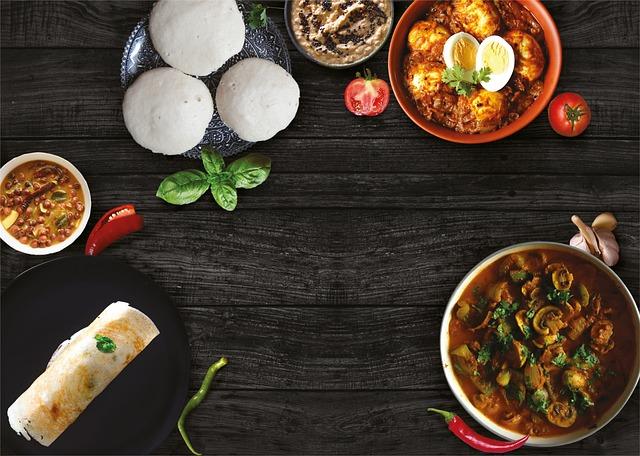

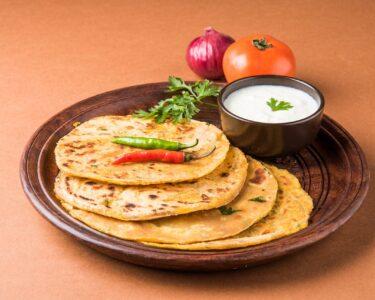
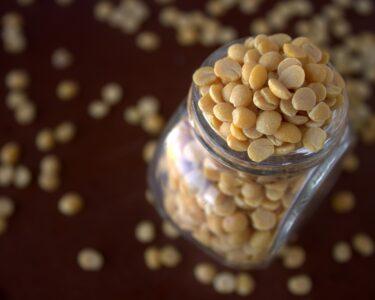

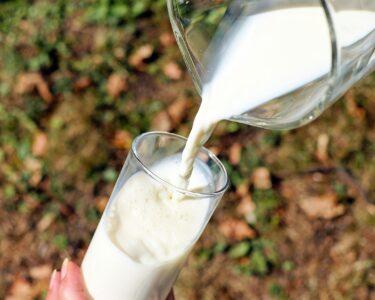
2 Comments